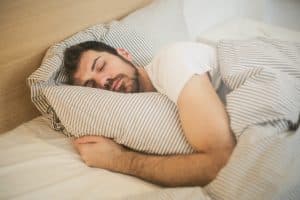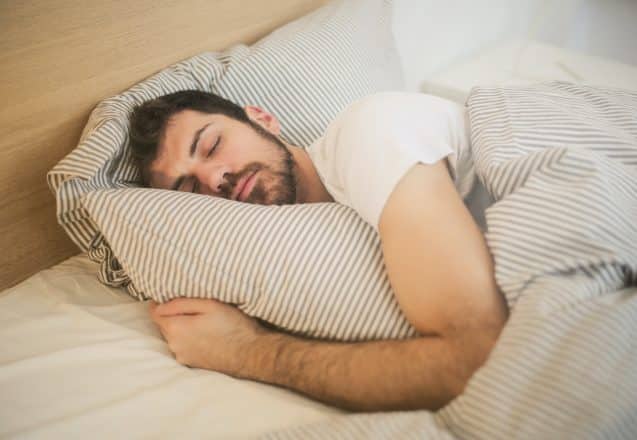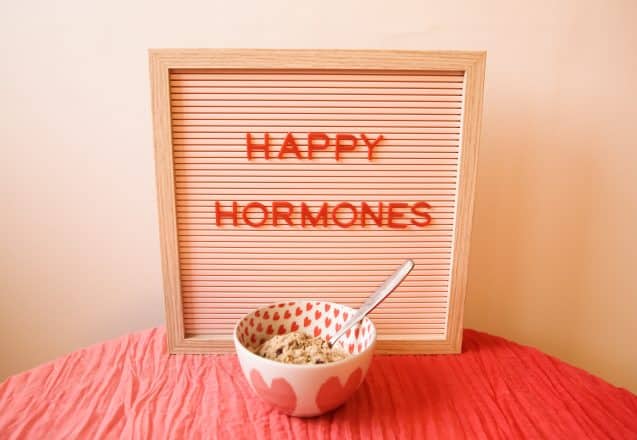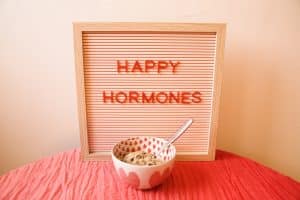Can Certain Foods Help Me Sleep Better?
 The food you eat and when you eat it can make a difference in the quality of your sleep and how quickly you fall asleep. There’s a lot of controversy about whether you should eat before bedtime or stop eating hours before you lay down. There are different points of view on this topic. Some people can’t sleep without eating something, while others get digestive issues and interrupted sleep if it’s too close to bedtime.
The food you eat and when you eat it can make a difference in the quality of your sleep and how quickly you fall asleep. There’s a lot of controversy about whether you should eat before bedtime or stop eating hours before you lay down. There are different points of view on this topic. Some people can’t sleep without eating something, while others get digestive issues and interrupted sleep if it’s too close to bedtime.
Who should have a late-night snack, and who shouldn’t?
If you suffer from acid reflux, avoid eating within three hours of bedtime. When you lay down, it encourages reflux action. Eating a heavy meal right before bed is discouraged no matter what the situation. It interferes with your circadian rhythm. If the meal is too much or too fatty, it can leave you feeling full and miserable and make it hard to get or stay asleep, which interrupts or prevents sleep. Some people need a small snack before bedtime to get to sleep. It’s instinctive from a time when early man would starve if he didn’t keep hunting for food.
The Thanksgiving turkey is known to put people to sleep.
Turkey contains tryptophan. It’s an amino acid that promotes sleepiness. It’s in more than turkey. Seafood, beef, other poultry, and pork contain it too. Tryptophan converts to serotonin and melatonin. Melatonin helps you sleep by triggering your internal signals that tell your body that you’re tired. Serotonin can help with insomnia. Almonds and walnuts are high in melatonin. They’re also high in magnesium. Magnesium improves sleep quality.
Fatty fish is a good source of omega-3.
Fatty fish like salmon or tuna are also sources of vitamin D. Both vitamin D and omega-3 are important for fighting inflammation and increasing the body’s production of serotonin. Avoid alcohol, nicotine, and caffeine before bedtime since they’re all stimulants. Eating a hard-boiled egg or a handful of nuts can help you fall asleep more quickly.
- There are hundreds of things that can keep you up at night and almost as many ways to conquer it. Poor sleep hygiene is one of the causes. You can counteract it by creating a sleep schedule and sticking with it.
- Drinking a cup of chamomile tea can help you relax if you’re having problems sleeping. A cup of warm milk can also help. The calcium and tryptophan in milk can help lower your stress levels. A cup of cherry juice can also help.
- Increasing your potassium level can help you sleep sounder. Eating a banana will do that. Eating a kiwi an hour before bedtime can also help you get better sleep. It contains serotonin.
- Try turning off all electrical appliances with a screen or that give off light. The room should be dark when you sleep. While you might fall asleep watching Netflix, you won’t get quality sleep. Keep the room cooler for the best sleep.
For more information, contact us today at Iron Fit San Antonio



